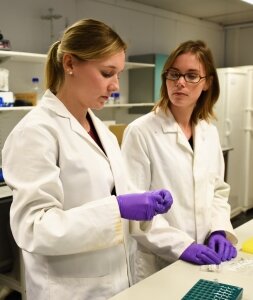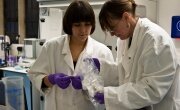MARCH 2015: A Molecular Perspective on Disease in the Transatlantic Slave Trade
The EUROTAST fellows will be presenting the findings of their research at the upcoming Genetics/Heritage conference, 23-25 April at the International Slavery Museum in Liverpool. Deadline for registration to attend the conference is March 30th. To attend the conference, visit the Genetics/Heritage website.

Title: A molecular perspective on disease in the transatlantic slave trade
Authors: Jessica Hendy, Matthew Collins
Abstract:
One major legacy of the transatlantic slave trade is the affect this period had on disease and health across the Atlantic world; causing the spread of new diseases into new environments, affecting populations which were vulnerable, and causing the spread of disease carriers, like mosquitoes. For enslaved people overwork, malnutrition and infectious diseases caused widespread mortality. Because medical records of the time are limited, we have to find new ways to identify and study diseases of the slave trade. In this interdisciplinary approach, we have developed a novel method to find and study past diseases; by extracting ancient proteins found preserved in dental calculus (tartar). Recent excavation on the island of St Helena has revealed the remains of 325 victims of the transatlantic slave trade. These remains represent people who died as a result of their forced transport across the Atlantic in appalling conditions. We have analysed the dental calculus from some of these individuals, revealing some of the respiratory and oral infections these individuals suffered from. This, alongside osteological and historical information, is building up a picture of the health of these individuals. In addition, we have demonstrated that dental calculus can act as a reservoir of food consumed during the individual’s lifetime. In this project we have developed a new method for studying ancient diseases, which, together with accelerating technological advances in protein research, is contributing to new chapter in biomolecular archaeology.

